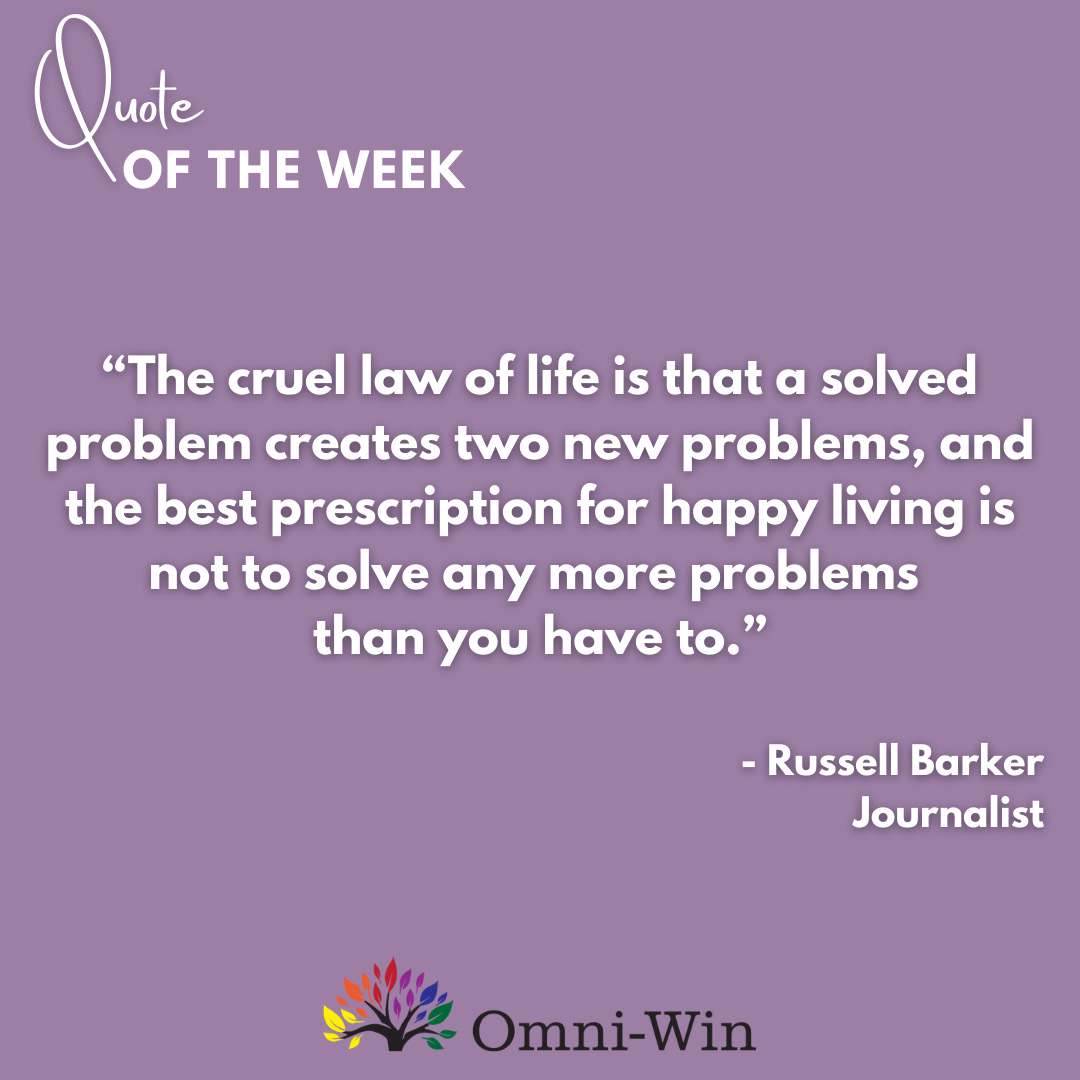Solutions Are an Illusion
Featuring quotes from Russell Barker and Patti Smith
I want to talk about solutions this week. I'm going to start us off with a quote from Russell Barker, who was a journalist and columnist for many decades. He was a political correspondent, White House correspondent, and someone who's been up in the trenches.
Here are some of the things he has to say.
"The cruel law of life is that a solved problem creates two new problems, and the best prescription for happy living is not to solve any more problems than you have to."
Now, this is a little confounding, especially as I work in conflict resolution, which people think is all about solving problems.
I'm going to up the ante here with another quote I just found in my daily calendar. It's from Patti Smith:
"Nothing is ever solved. Solving is an illusion. There are moments of spontaneous brightness when the mind appears emancipated, but that is mere epiphany."
That's from her memoir, The Year of the Monkey. So, what are we going to do about this? Why am I saying this as a mediator?
Well, there's a couple of reasons why we're not going to solve all the problems. First of all, everything is getting increasingly complex in our world. As we grow as a society, and every time we solve a certain issue, we uncover a new layer of problems.

As we look over civilizational time, we had an industrial revolution, and agriculture solved all sorts of problems of not needing to forage around. We started coming up with systems to survive as a whole society.
But the industrial revolution sure as heck caused many problems for us. Stepping into modernity has caused many challenges. Coming out of the sixties, people recognized the ecological impact of that, and they have been coming up with new solutions to those problems.
In our current politics, progressive causes are also bringing up challenges. So, every time we solve something, we create a more complex dynamic, which means we need to be ready to solve that.
The other reason why we're not going to solve anything? That gives us the idea that we're reaching a fixed state where we're just going to be done, and everything will be sorted.
But guess what? We're not going to get there either. We live in a dynamic process. As I discussed in my essay last week, everything's just another process. We won't get to a fixed state; instead, we'll move into a new dynamic process where there will still be things that we need to improve.
There was something I used to say as a jokey tagline for my conflict transformation business:
"Increasing shades of adequacy, 'cause anyone who's trying to sell you a problem or a solution is a freaking liar."
People don't necessarily want to just go from inadequate to more adequate to more adequate. But honestly, that might be the best thing we can be doing.
If this sounds like a lot to you, don't worry. I have a whole plan for how to talk through all of this.
Next, I’ll talk about the fourth of the three rules of conflict. Confused? I’ll be clearing that up later in the week.
Here’s the video that inspired this essay:
You can find more information about the work I do in conflict transformation on my website: http://www.omni-win.com
You can schedule a call with me here: https://calendly.com/duncanautrey
Don’t forget to check out the rest of my posts as I discuss how we can work together to ensure we all win.
If you’d like to see more of these weekly round-up posts, subscribe to Omni-Win Visions here on Substack:
It would also be great if you could subscribe to my YouTube channel where you can see more of my long-form content, authentic discussions, and weekly content:


